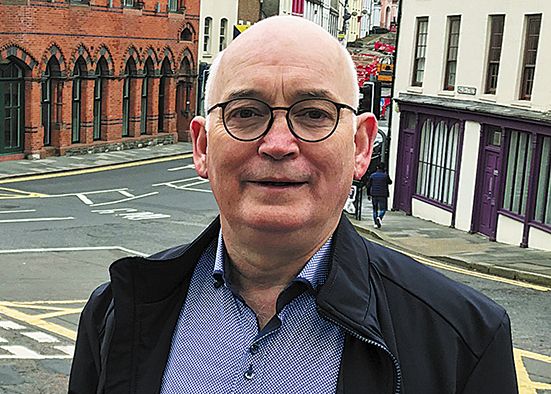Appeal for suicide prevention support
Appeal for suicide prevention support
6 November 2024

ONE of the district’s leading charities says it’s not too late for the Stormont administration to show it will make suicide prevention a priority.
The appeal by Suicide Down to Zero (SDZ) came ahead of the end of public consultation on the NI Executive’s draft Programme for Government on Monday.
The Downpatrick-based charity — which works across the district — was founded on the belief that there is no acceptable level of suicide and says it is a “preventable phenomenon, not an inevitable one”.
The charity insists suicide is a public health issue, not a mental health issue, in that while mental illness and suicide are related, they certainly are not synonymous.
SDZ said the only way suicide can be prevented is if it is talked about openly and directly and that simply telling people to get help is not enough.
And it believes the First and Deputy First Ministers and their Executive colleagues “could take a bold stance on suicide” and declare that the goal for suicide deaths is zero.
The charity says that within the Safer Communities section of the Draft Programme the opening line is “a central role of government is to protect its citizens” but SDZ argues one of the most glaring omissions of the draft programme is no mention of protecting people at risk or affected by suicide.
Over 200 people die by suicide every year in the province and in a few weeks’ time, it is expected that the Northern Ireland Research and Statistics Agency will confirm that the number of reported suicides here in 2023 has risen to 221.
“Unreported suicides could be as many as 55 more. Suicide behaviours/suicide attempts could be anything up to 22,100 and the number of people affected by the suicide deaths each year could be 37,260,” said Mr Pat McGreevy from the local charity.
He said suicide was a major public health emergency “yet it merits no mention in the document”.
Mr McGreevy continued: “By our calculations, almost 60,000 people are affected by suicide every year here.
“That means that over the three-year life of the Programme for Government, 180,000 people are to be left with ‘treatment as usual’ with no Government urgency or priority brought to bear on this crisis.
“At the tip of this iceberg, the societal impact of suicide, is the actual deaths and with no urgency, priority or prevention target, over 600 more people will die over the time of this programme.”
SDZ said the First and Deputy First Ministers and their Executive colleagues could take a bold stance on suicide by firstly declaring that the goal for suicide deaths is zero.
Other key stances include ensuring that people who self-harm, attempt suicide or have abused substances, should have their care delivered away from hospital emergency departments to alternative and more appropriate environments.
Those who survive the suicide of someone close are potentially at higher risk of suicide, with the charity calling for the response to families and friends of those die by suicide to be standardised as currently each health trust area operates a different support approach.
SDZ believes considerations should be given to an `opt out` approach to the care of these people as often, in the early days following the suicide death, family members decline the support offered.
It says representatives of the care agencies should proceed with contacting the family some weeks after the death despite their earlier refusal as the family is now perhaps a much better position to either accept the help offered or to opt out.
SDZ passionately believes suicide is preventable not inevitable and it’s mission is to end suicide deaths in Northern Ireland.
This month, the charity’s development workers begin to pilot a new seven element model in schools, sports clubs and workplaces to enable them to become suicide down to zero environments.
The elements are leadership and governance, mental health and wellbeing promotion, suicide awareness and prevention, training, suicide intervention and ongoing community support, healing after suicide and evaluation.
If the new initiative proves successful, SDZ plans to spread the approach to include youth clubs, carers groups and community associations.
The charity believes everyone can make a contribution to saving lives from suicide by raising awareness, being trained in suicide first-aid, or helping those who have survived a suicide attempt or helping a family who is suffering the loss of a loved one to suicide.
In 2019, SDZ successfully campaigned for Newry Mourne and Down Council to adopt a suicide down to zero approach.


